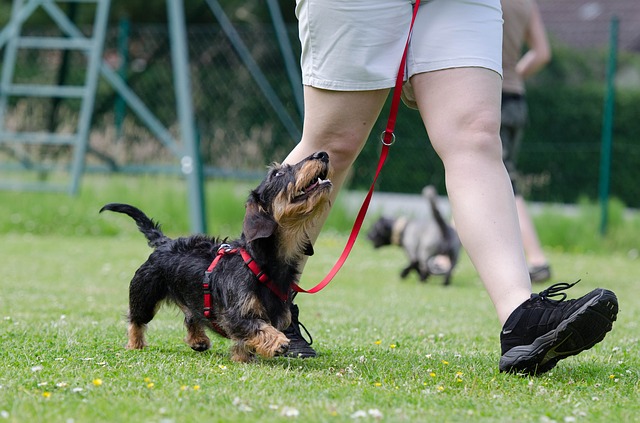Every dog parent knows that sometimes you need to take your fur friend to the vet. Dogs come in so many sizes that I thought I would explore the top 5 reasons that small breed dogs see me. All purebred dogs can probably trace back to a handful of similar ancient breeds, so there are definitely genetic predispositions in purebred dogs. Some of the problems simply are made more likely by the size, conformation or lifestyle of the patient. In my practice, I see small breed dogs every day. Here is a list of what I see and the presenting complaints that a pet parent might notice at home.

#1 – Dental Disease
It seems that when we selectively bred for tiny dogs, we may have inadvertently gotten some things we didn’t bargain for. I see a lot of dental disease in my small breed patients. Whether it is because the teeth are crowded into mouths too small or because dogs with genetically poor dental health were chosen more frequently for breeding populations I do not know, but dental disease is a specter that looms over most of my small breed patients. If you own a small or teacup dog, be certain that you are doing the preventive things necessary to avoid this painful process. Things like brushing the teeth every day, offering dental chews and making sure your veterinary team recommends preventive dental care go a long way in preventing pain. Most importantly, LOOK in your dog’s mouth. As a pet parent, you will notice foul breath first. You may see brown build-up on the teeth or inflamed, red gums. You may even notice broken teeth. Your dog will probably not act like he or she is in pain, but dental disease is excruciating and your vet can help.
#2 – Hair Loss/ Alopecia
I think that people notice skin disease the most because, well….you can SEE the skin without even trying. But because of the prevalence of allergic skin disease, metabolic abnormalities, insect stings and infections, a lot of dogs come to see me with missing hair. If you notice spots of hair missing whether or not your dog is scratching or licking, see your vet. Our tiny dogs have more than their fair share of allergic disease. They routinely suffer from metabolic abnormalities like Cushing’s disease which can also cause hair loss. Many of the things that cause alopecia can impact your pet’s quality of life and some of them can shorten the life altogether. Your vet will want to know how long the hair has been missing and whether or not your dog is itching and will make a diagnostic plan so the two of you can form a team to help your dog.

#3 – Skin Tumors
My little patients come in regularly with skin bumps. Many of these are benign sebaceous cysts and require no medical intervention since they will not spread, but they can become large and interfere with grooming on my small friends. Sometimes these cysts will rupture and become infected. If you notice a skin tumor on your small breed dog, be safe instead of sorry and ask your vet. Some of these bumps will be easily identifiable to your veterinarian and some will require diagnostic testing to feel secure that they are not malignant. Small breed dogs are certainly at risk for skin cancers as well and surgical removal can be curative. Simply ignoring a bump is not the best option.
#4 – Osteoarthritis
Most dogs have osteoarthritis as they age and as a whole, small breed dogs live longer than their larger counterparts. We think of joint disease as a large dog problem, but I see it in my small dogs often as well. It seems like they do not start evidencing it quite as early (or maybe no one notices because they are small), but many of my small dog owners have built steps and ramps to help their little friends get onto the bed and couch more easily. If you are alert, you may notice signs of stiffness or reluctance to do normal things as your small dog ages. Don’t assume that your dog is just slowing down because of aging. We have many options for restoring quality of life.

#5 – Gastrointestinal Trouble
Little dogs seem to be more at risk for many causes of vomiting and diarrhea. Perhaps it is because they are underfoot and are often given (or able to take) samples of human foods or maybe they are genetically deficient in gastrointestinal enzymes. Whatever the reason, I see small dogs for diseases like pancreatitis, hemorrhagic gastroenteritis, and a myriad of other causes of vomiting and diarrhea. A few of these disorders are self-limiting, but pancreatitis and hemorrhagic gastroenteritis are certainly life-threatening and will require medical intervention. Make sure your small breed dog is on a premium and highly digestible diet and limit access to high-fat options.
Just because these things are common does not mean that you should manage them at home. All of these things are reasons that small breed dogs come to my animal hospital. If you think that your dog may have one of these (or any issue that isn’t quite right), let your vet help.
Please look me up on Twitter, Facebook and Google+ . I love hearing about your pets!
